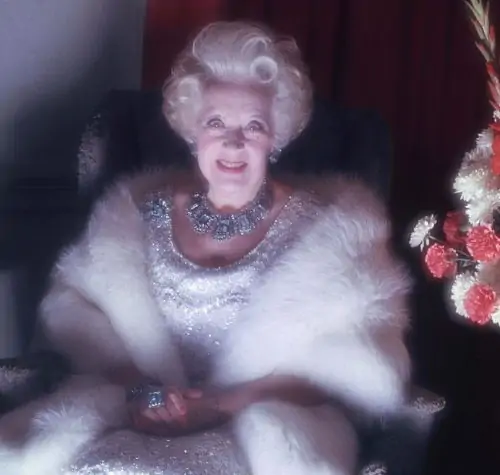‘Jewellery’ and ‘jewelry’ both refer to things like necklaces, bracelets, and rings. However, we only use the spelling ‘jewellery’ in British English.
So, do you ever need to use ‘jewelry’? And how can you be sure of avoiding errors when using this word in your writing? Let’s take a look.
What Does ‘Jewellery’ Mean?
‘Jewellery’ is a noun that refers to items of personal adornment, such as necklaces, bracelets and rings. We could use it in a sentence like this:
Barbara Cartland wore a lot of jewellery.
It comes from the word ‘jewel’, which refers to a precious stone (e.g. a diamond or ruby). However, we also use ‘jewellery’ for items that don’t feature any jewels (e.g. a wooden pendant or a gold ring).

(Photo: Allan Warren/wikimedia)
British vs. American English
British and American English agree on the spelling of ‘jewel’. But with ‘jewellery’ – and a range of words derived from ‘jewel’ – there is a transatlantic spelling difference, as shown below:
|
British English |
American English |
|
Jewellery |
Jewelry |
|
Jeweller |
Jeweler |
|
Jewelled |
Jeweled |
|
Jewelling |
Jeweling |
With all these words, we see how US English simplifies spellings. In most of these cases, Americans simply drop the extra ‘l’ from the UK spelling. But with ‘jewellery’, we have an extra ‘e’, too!
Find this useful?
Subscribe to our newsletter and get writing tips from our editors straight to your inbox.
Generally, the only time you will need to use ‘jewelry’ is when writing for a North American audience. The same applies for the other US spellings above.
Summary: Jewellery or Jewelry?
The basic distinction between these spellings is dialect:
- Jewellery is the standard spelling in British English.
- Jewelry is the standard spelling in American English.
If you struggle to tell these spellings apart, remember that the extra ‘l’ and ‘e’ in ‘jewellery’ match the first letters in London, England, where ‘jewellery’ is the standard spelling! And if you’d like any more help with the spelling in a document, we have proofreaders available 24/7.



